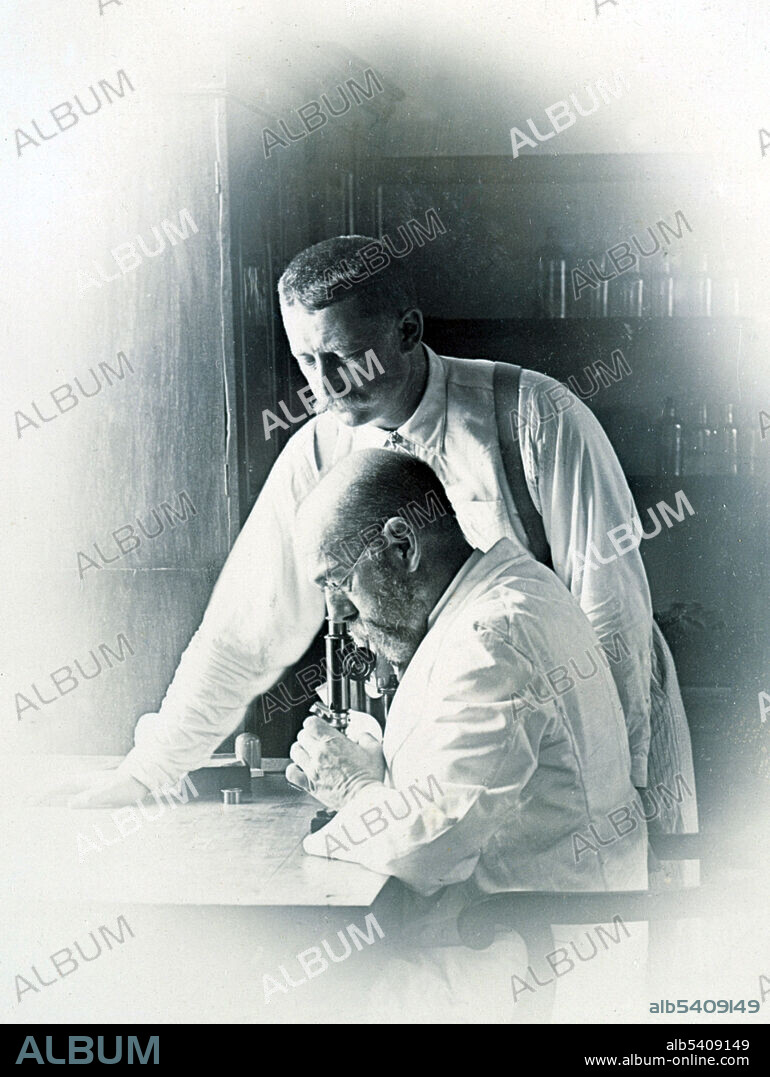alb5409149
Robert Koch and Richard Pfeiffer, German Bacteriologists,1897

|
Add to another lightbox |
|
Add to another lightbox |



Buy this image.
Select the use:

Title:
Robert Koch and Richard Pfeiffer, German Bacteriologists,1897
Caption:
Professors Koch and Pfeiffer working in a laboratory, investigating the plague in Bombay. Heinrich Hermann Robert Koch (December 11, 1843 - May 27, 1910) was a German physician and microbiologist. As the founder of modern bacteriology, he identified the specific causative agents of tuberculosis, cholera, and anthrax and gave experimental support for the concept of infectious disease, which included experiments on humans and animals. Koch created and improved laboratory technologies and techniques in the field of microbiology, and made key discoveries in public health. His research led to the creation of Koch's postulates, a series of four generalized principles linking specific microorganisms to specific diseases that remain today the gold standard in medical microbiology. For his research on tuberculosis, Koch received the Nobel Prize in Physiology or Medicine in 1905. In 1910, Koch suffered a heart attack and never made a complete recovery. Three days after giving a lecture on his tuberculosis research at the Prussian Academy of Sciences, Koch died in Baden-Baden at the age of 66. Following his death, the Institute named its establishment after him in his honor. Richard Friedrich Johannes Pfeiffer (March 27, 1858 - September 15, 1945) was a German physician and bacteriologist. Photograph attributed to Captain C. Moss, 1897.
Personalities:
Credit:
Album / Science Source / Wellcome Images
Releases:
Model: No - Property: No
Rights questions?
Rights questions?
Image size:
3271 x 4350 px | 40.7 MB
Print size:
27.7 x 36.8 cm | 10.9 x 14.5 in (300 dpi)
Keywords:
1897 • 19TH CENTURY • BACTERIOLOGIST • BW • CELEBRITIES • CELEBRITY • FAMOUS PEOPLE • FAMOUS • GERMAN • GERMANS • HISTORICAL DOCTOR • HISTORY • MAN • MEN • MICROBIOLOGIST • NOBEL PRIZE LAUREATE • NOBEL PRIZE • NOBEL • PERSONALITY • PHOTO • RICHARD PFEIFFER • ROBERT KOCH
 Pinterest
Pinterest Twitter
Twitter Facebook
Facebook Copy link
Copy link Email
Email
